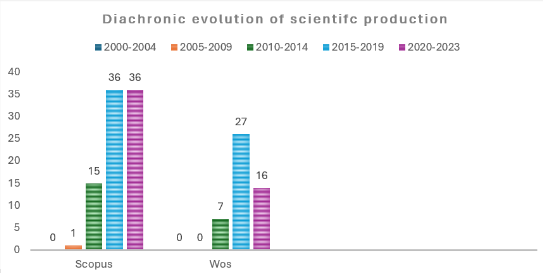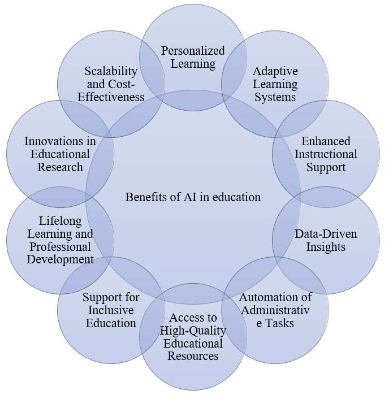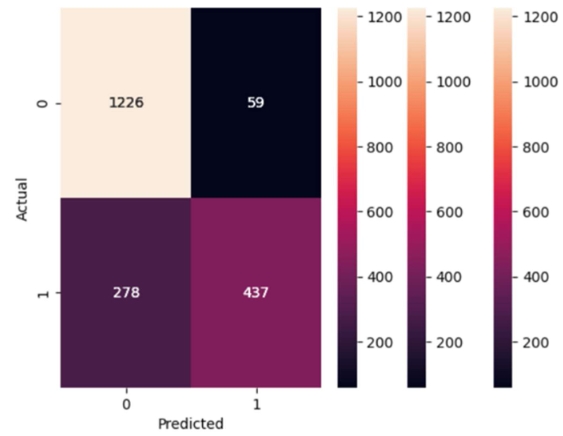A systematic review of the financial issues of higher education institutions (HEIs) and possible strategies to cope with them
Abstract
The field of higher education has not only been for elites since the last three decades. It has also included the general masses in it. That’s why the transformation of the socio-economic status and general awareness in the present age owes to higher education. On the other hand, challenges have also emerged and set conditions on the path to sustainability. Thus, higher education has faced problems, especially financial problems. These issues further give birth to some other issues. This study is an attempt to understand the issues caused by financial issues. The study also aimed to propose strategies to deal with these issues. Based on the systematic literature review, the problems have been categorized as lack of internet, digitalization, and online teaching; underdeveloped infrastructure for STEAM; lack of priorities; and quality issues. These findings create hurdles in achieving the quality of HEIs. To cope with these issues, clear policy and setting priorities were proposed as the top most important strategies to bring about quality and achieve HEIs’ organizational objectives. It can be concluded that HEIs need appropriate strategic and financial managers and administrators who can align their strategy with the vision and mission of the institutions.
References
[1]Ferlie E, Musselin C, Andresani G. (2009). The Governance of Higher Education Systems: A Public Management Perspective. In: Paradeise C, Reale E, Bleiklie I, Ferlie E (editors). University Governance. Springer Netherlands; 2009. pp. 1–19.
[2]Esfahbodi A, Zhang Y, Watson G, et al. Governance pressures and performance outcomes of sustainable supply chain management—An empirical analysis of UK manufacturing industry. Journal of Cleaner Production. 2017; 155: 66–78. doi: 10.1016/j.jclepro.2016.07.098
[3]Yang S, Ye X, He D. Global pathways: new evidence on the international graduate school choice of Chinese outbound students. Higher Education. 2023; 86(6): 1415–1454. doi: 10.1007/s10734-022-00979-6
[4]Olssen M, Peters MA. Neoliberalism, higher education and the knowledge economy: from the free market to knowledge capitalism. Journal of Education Policy. 2005; 20(3): 313–345. doi: 10.1080/02680930500108718
[5]Leydesdorff L, Etzkowitz H. A Triple Helix of University-Industry-Government Relations. Mode 2 and the Globalization of National Systems of Innovation. Science under pressure. Springer International Publishing; 2001. p. 7.
[6]Dwivedi YK, Jeyaraj A, Hughes L, et al. “Real impact”: Challenges and opportunities in bridging the gap between research and practice—Making a difference in industry, policy, and society. International Journal of Information Management. 2024; 78: 102750. doi: 10.1016/j.ijinfomgt.2023.102750
[7]Bukhari SKUS, Aslam S, Mahmud, S. Exploring Strategic Management of Head of Departments: A Case Study of Public Universities in Lahore. Pakistan Journal of Educational Research and Evaluation. 2023; 11(1), 171–196.
[8]Engwall L. The Governance and Missions of Universities: Past, present, future. Springer International Publishing; 2020. pp. 1–19.
[9]Hong M. Public university governance in China and Australia: a comparative study. Higher Education. 2018; 76(4): 717–733. doi: 10.1007/s10734-018-0234-5
[10]Nisar MA. Higher education governance and performance based funding as an ecology of games. Higher Education. 2015; 69(2): 289–302. doi: 10.1007/s10734-014-9775-4
[11]Merrill MC, Kretovics MA. Integrated approaches to the assessment of internationalization. New Directions for Higher Education. 2020; 192: 51–62. doi: 10.1002/he.20391
[12]Gigliotti RA. The Impact of COVID-19 on Academic Department Chairs: Heightened Complexity, Accentuated Liminality, and Competing Perceptions of Reinvention. Innovative Higher Education. 2021; 46(4): 429–444. doi: 10.1007/s10755-021-09545-x
[13]Kant I. Kant: Political Writings. In: Reiss HS (editor). Cambridge University Press; 1991. doi: 10.1017/cbo9780511809620
[14]Mill JS. Utilitarianism Seven masterpieces of philosophy. Routledge; 2016. pp. 329–375.
[15]Bukhari SKUS, Said H, Nor FM. (2020). Conceptual understanding of sustainability among academic administrators of Pakistan public universities. The Qualitative Report. 2020; 25(1), 28–59.
[16]Roopchund R. Higher education challenges for public universities in Mauritius. International Journal of Management in Education. 2019; 13(3): 205–217. doi: 10.1504/ijmie.2019.100401
[17]Williams G, Filippakou O. Higher education and UK elite formation in the twentieth century. Higher Education. 2010; 59(1): 1–20. doi: 10.1007/s10734-009-9229-6
[18]Dlouhá J, Glavič P, Barton A. Higher education in Central European countries—Critical factors for sustainability transition. Journal of Cleaner Production. 2017; 151: 670-684. doi: 10.1016/j.jclepro.2016.08.022
[19]Bukhari SKUS, Said H, Gul R, et al. Barriers to sustainability at Pakistan public universities and the way forward. International Journal of Sustainability in Higher Education. 2021; 23(4): 865–886. doi: 10.1108/ijshe-09-2020-0352
[20]Alomoush R, Alkhozahe H. The Role of e-Training Programs on Developing the Digital Skills of Social Studies Teachers in the Twenty-First Century as Perceived by School Directors. Dirasat: Human and Social Sciences. 2022; 49(5): 125–46. doi: 10.35516/hum.v49i5.3459
[21]Bukhari SKUS, Said H. Lack of Environmental Sustainability in Youth Training at Higher Education. Journal of education and vocational research. 2013; 4(9), 254-–258. doi: 10.22610/jevr.v4i9.128
[22]Quy VK, Thanh BT, Chehri A, et al. AI and Digital Transformation in Higher Education: Vision and Approach of a Specific University in Vietnam. Sustainability. 2023; 15(14): 11093. doi: 10.3390/su151411093
[23]Lame G. Systematic Literature Reviews: An Introduction. Proceedings of the Design Society: International Conference on Engineering Design. 2019; 1(1): 1633–1642. doi: 10.1017/dsi.2019.169
[24]Moshtari M, Safarpour A. Challenges and strategies for the internationalization of higher education in low-income East African countries. Higher Education. 2024; 87(1): 89–109. doi: 10.1007/s10734-023-00994-1
[25]Ward JD, Haynes M. Facing a crisis head-on: Institutional borrowing decisions during times of uncertainty. New Directions for Higher Education. 2022; 2022(198): 2–31. doi: 10.1002/he.20447
[26]Börjesson M, Dalberg T. Massification, unification, marketisation, internationalisation: a socio-political history of higher education in Sweden 1945–2020. European Journal of Higher Education. 2021; 11(3): 346-364. doi: 10.1080/21568235.2021.1945473
[27]Song J, Chu Z, Xu Y. Policy decoupling in strategic response to the double world-class project: evidence from elite universities in China. Higher Education. 2021; 82(2): 255–272. doi: 10.1007/s10734-020-00642-y
[28]Scott T, Guan W. Challenges facing Thai higher education institutions financial stability and perceived institutional education quality. Power and Education. 2023; 15(3): 326–340. doi: 10.1177/17577438221140014
[29]Horta H, Meoli M, Vismara S. Crowdfunding in higher education: evidence from UK Universities. Higher Education. 2021; 83(3): 547–575. doi: 10.1007/s10734-021-00678-8
[30]Hearn JC, Burns R. Contingent Faculty Employment and Financial Stress in Public Universities. The Journal of Higher Education. 2021; 92(3): 331–362. doi: 10.1080/00221546.2020.1851570
[31]Ingram S. The financial impact of policy reform on the Australian university sector 1988–2019. Higher Education. 2023; 86(5): 1233–1267. doi: 10.1007/s10734-022-00970-1
[32]Lang DW. Financing higher education in Canada: a study in fiscal federalism. Higher Education. 2021; 84(1): 177–194. doi: 10.1007/s10734-021-00761-0
[33]Bukhari SKUS, Gul R, Bashir T, et al. Exploring managerial skills of Pakistan Public Universities (PPUs)’ middle managers for campus sustainability. Journal of Sustainable Finance & Investment. 2021: 1–19. doi: 10.1080/20430795.2021.1883985
[34]Fadda N, Marinò L, Pischedda G, et al. The effect of performance-oriented funding in higher education: evidence from the staff recruitment budget in Italian higher education. Higher Education. 2022; 83(5): 1003-–1019. doi: 10.1007/s10734-021-00725-4
Copyright (c) 2024 Syed Kaleem Ullah Shah Bukhari

This work is licensed under a Creative Commons Attribution 4.0 International License.









